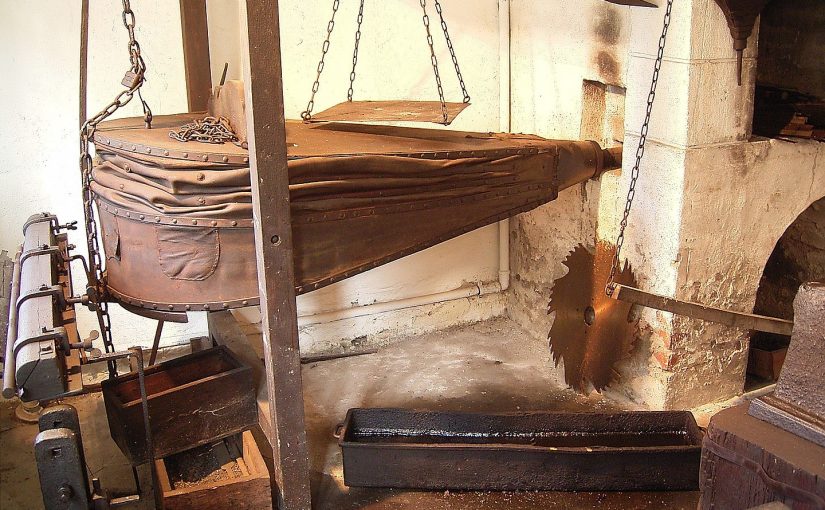Air is the substance of our atmosphere and provides every living thing with its breath of life.
Abridged from Air and Breathing, by T.C. Fry
Plants receive oxygen through their leaves; insects breathe through tiny openings in their bodies; frogs breathe partly through their skin; fish absorb oxygen out of the water as it passes over their gills; and humans receive their supply of oxygen partly through the skin, but largely through the lungs. The independent life of a body does not begin until it takes its first breath and this function of breathing continues until the end of life. This is the process of respiration, and it must be considered the primary function of the living organism. We can live many weeks without food and some days without water, but if the function of breathing is interfered with for only a few minutes, our life quickly ends.
By far, the largest organs in the body are the lungs, designed and adapted to their work of receiving air and nothing else. A normally functioning pair of lungs contain approximately a billion tiny air cells. The total surface area of lungs vary from 50 to 75 square meters(540 to 810 sq ft)
The average human inhales daily approximately 11,000 liters of air per day. In the exchange our blood is is purified of it CO2(carbon dioxide) content in the form of carbonic acid. This is a continuous process, and if it is interfered with, the result could be fatal. The whole process is automatic and is regulated by the body’s need for oxygen. CO2 is composed of one part carbon and two parts oxygen and is not easily detected, as it is colorless, odorless and tasteless. For every 2,500 parts of atmospheric air, there is one part of carbon dioxide. When the air we breathe contains 3% carbon dioxide, a drowsy feeling occurs, and when present in larger quantities, death quickly follows.
At each exhalation the lungs discard enough gases, consisting of carbonic, lactic, hydrochloric, phosphoric and other acids, to poison a barrel full of air. In every 24-hour period, the amount of CO2 eliminated by the lungs is equal to a lump of charcoal weighing eight ounces.
With this in mind, consider also that every person in a room needs 3,000 cubic feet of fresh air an hour to insure purity. In the case where several occupy a room not adequately ventilated, we inhale the exhalations of others and ourselves, and the amount of carbon dioxide contained in the air increases, making it more dangerous to breathe. This is the principal reason why patients in hospitals develop diseases of the lungs such as influenza and pneumonia. The early symptoms of mild carbon dioxide poisoning are sensations of uneasiness and oppression, drowsiness, sneezing, headache and coughing.
Proper and sufficient breathing depends upon a number of factors, including health of nose, throat, chest, lungs and abdomen; proper body posture; freedom of movement of the chest and abdomen (lack of restrictive clothing); well-ventilated homes, bedrooms, etc. and ample exercise in the out-of-doors.
In this light, mention should be made that exercises to develop the chest and to increase its capacity for oxygen are well advised.
Regarding our breathing apparatus, the normally functioning nose permits adequate amounts of air to enter the lungs through but one nostril under ordinary conditions. When under great stress, as when running, the additional nostril should provide for the intake of sufficient air, providing both nostrils are normal.
Generally, mouth breathing is a symptom of disease, as in adenoids, polyps, nasal catarrh(mucus), a cold, etc.
Every day we should take advantage of the cleanest air available in the particular vicinity in which we live. It is important that we do some exercises that will promote greater oxygen intake. This will also enable us cast off additional toxins from our lungs and help keep our breathing functions in a healthier condition.
Abridged at 643 words from Terrain Wiki – Air and Breathing(1945 words).
Image Credit: Frank Vincentz – Own work, CC BY-SA 3.0, https://commons.wikimedia.org/w/index.php?curid=2826138
Michael J. Loomis | Editor at Chew Digest | Scribe at Terrain Wiki
